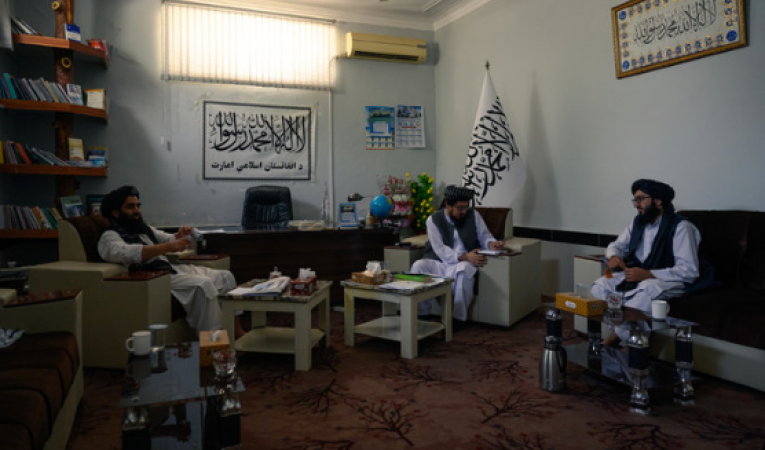
Washington: Some American experts believe that a strategy of engagement with the Taliban government in Afghanistan would aid the US government in achieving its objectives of battling terrorism and bettering the lives of Afghan women and girls.
Others contend that Washington must reject any negotiations with the Taliban because their ideology and recent behaviour since retaking power in August 2021 demonstrate their inherent irredeemability.
These opposing viewpoints were presented on Tuesday during a panel discussion about US policy towards the Taliban that was sponsored by the Middle East Institute in Washington.
Also Read: UN human rights chief: Qur'an burning was "manufactured" to incite hostility and rift
In response to September 11, 2001, US forces invaded Afghanistan in October of that year. After the Taliban regime refused to turn over Al-Qaeda members who had been implicated in the attacks on New York and Washington, they sought to overthrow the regime, which had been in place since 1996.
The last remaining US forces in Afghanistan hastily withdrew from Kabul and other regions in August 2021, at which point the Taliban quickly retook control of the nation.
The Taliban's treatment of women and girls, including severe restrictions on their right to education, led Lisa Curtis, a senior fellow and director of the Indo-Pacific Security Programme at the Centre for a New American Security, to argue that the US government should not cooperate with the organisation.
She claimed that during the Taliban's rule, violence and abuse against women and girls increased, which led to an increase in female suicides across the nation.
Curtis called attempts by US President Joe Biden's administration to engage with the Taliban on matters pertaining to terrorism "a mistake" and claimed that the US should not consider the group suitable counterterrorism partners simply because it is currently engaged in combating militants connected to the terrorist group Daesh.
Also Read: Former CEO Elizabeth Holmes Released Prior 2 Years from Jail
The US should concentrate on assisting the Afghan women, she continued.
While acknowledging his understanding of Curtis's position, Douglas London, a former CIA case officer and non-resident scholar at the Middle East Institute, asserted that the US should work with the Taliban to further its own counterterrorism goals and to influence and reform the Taliban's rule of Afghanistan.
He acknowledged that although the Taliban are not a uniform group, none of them can be said to be progressive, though some may have different interests and viewpoints. He expressed his desire for a formal US presence to return to Afghanistan but acknowledged that this might not be possible at the moment.
Although it is unclear whether this cooperation occurs in Afghanistan or a third country, the CIA and other US government officials have already worked with the Taliban, according to London.
Washington, according to Ronald E. Neumann, president of the American Academy of Diplomacy and a former US ambassador to Afghanistan, has no strategy for dealing with the Taliban or for Afghanistan. Although the US government has made some decisions regarding Afghanistan since its troops left the country, he claimed that neither a clear policy nor a strategy had been established.
Neumann agreed that the US should make contact with the Taliban because the absence of any connections makes it difficult for Washington to express its position or exert pressure when necessary. He added that an American presence in Kabul would aid in the advancement of US policies.
Neumann argued that America has a moral obligation to assist the Afghan people, particularly in terms of economic development. According to him, as a result of sanctions against the Taliban, about $500 million in private funds belonging to Afghan citizens are currently frozen in US banks; however, this money was deposited by private Afghan banks and has nothing to do with the regime.
The US has no moral justification for holding onto that cash, he insisted. "Giving it back will give the Afghan economy a much-needed boost."
Former Afghan ambassador to the UAE and non-resident scholar at the Middle East Institute Javid Ahmad called the Taliban an oppressive, hopeless organisation. He concurred that Washington and Kabul are already cooperating to some extent and claimed that the US and Europe are not interested in trying to topple the regime because there is no preferable alternative.
Also Read: Defence Ministry: On Wednesday, 30 Chinese military aircraft were spotted flying over Taiwan
Ahmad painted a depressing picture of the current political and social climate in Afghanistan, claiming that since the Taliban retook power, there is less room and tolerance for debate and society is becoming more divided.
For us, the past has not yet passed into history; it is still the present.